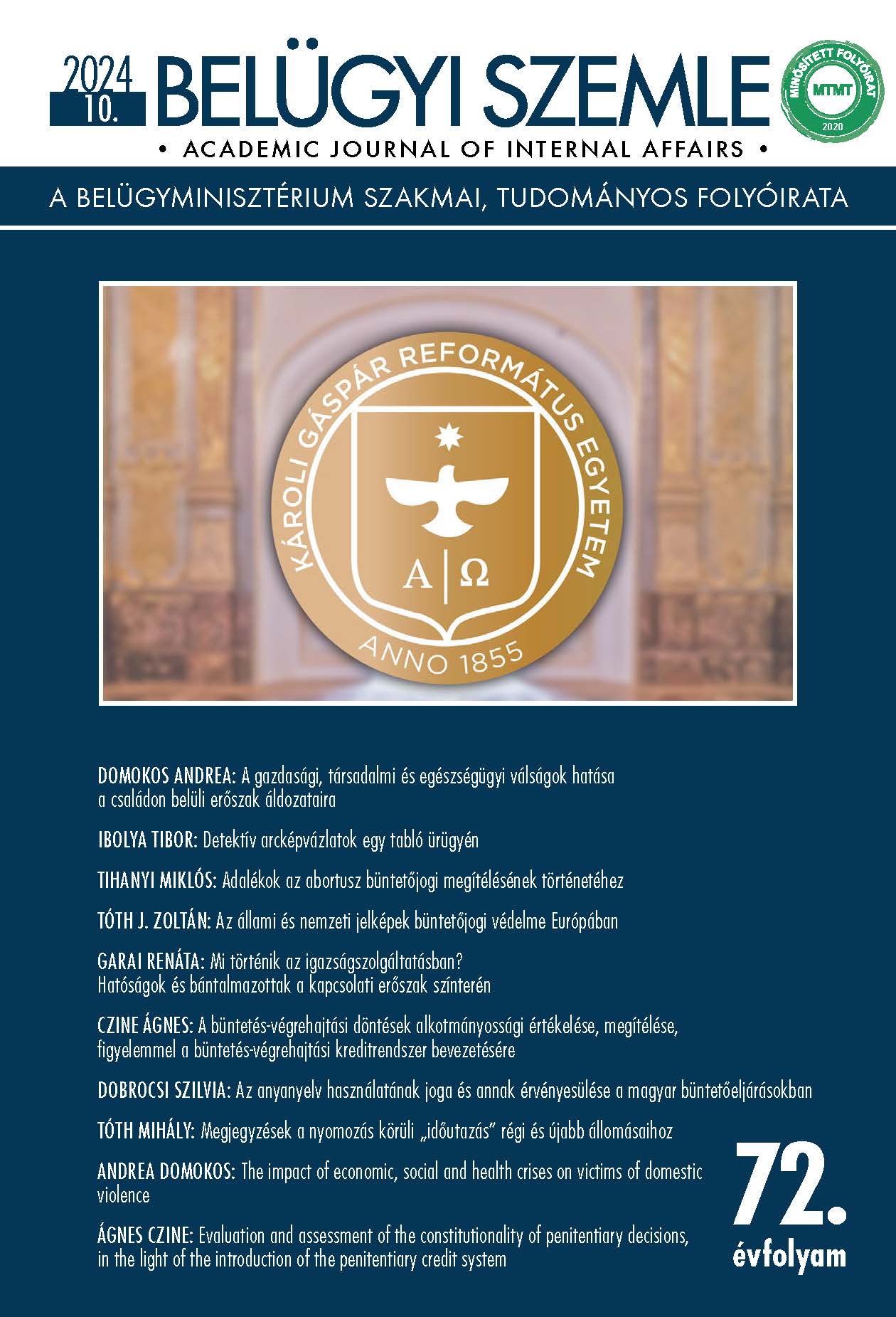Abstract
Aim: The situation of victims of domestic violence and partner abuse becomes even more serious in crisis situations. There have been and are ongoing conflicts in the world, which have been scrutinized by economists, sociologists, criminologists, health professionals and lawyers alike in recent years. The latest related research worldwide provides a lot of important new information that can help prepare for the problem and provide professionally competent answers.
Methodology: A selection of research conducted in different parts of the world. Summary reports were prepared to shed light on similarities and differences.
Findings: It is clear from the processed literature that the individual forms of violence are connected in crisis situations and pose an even greater danger. Violence at the macro level, such as war, also increases violent conflict at the micro level. The crises caused by the fear of COVID, the lockdown, war conflicts, hunger, and the climate disaster spill over into family homes and make the victims of domestic violence and partner abuse even more vulnerable. Most of the processed materials analyse research born after COVID. The COVID-19 epidemic also provided many lessons regarding the management and prevention of the economic effects of future natural disasters and the associated increased domestic violence.
Value: Analyses point to relationships that need further research and evaluation. In the future, macro- and micro-level violence research must be continued, common global results must be aggregated, and complex, global solutions must be developed. International organizations must continue to collect data and provide clear guidelines to public bodies and social organizations for the joint management of macro- and micro-level problems.
References
Domokos A. (2012). Kriminológia és büntetőpolitika Magyarországon a globális kihívások korában. Jog-Állam-Politika, 4(2), 3–12. https://dx.doi.org/10.6084/m9.figshare.25285147
Deres P. (2022). Kiberbiztonság, kiberbűnözés – Helyzetkép a Covid–19-pandémia időszakából. Kriminológiai Tanulmányok, 59, 29–46.
Deres P. (2023). Bűnüldözési prioritások az Európai Unióban. Kriminológiai Tanulmányok, 60, 62–82. https://doi.org/10.58655/KT.60.2023-4
Gama, A., Pedro, A. R., De Carvalho, M. J. L., Guerreior, A. E., Duarte, V., Quintas, J., Matias, A., Keygnaert, I. & Dias, S. (2021). Domestic Violence during the COVID–19 Pandemic in Portugal. Portuguese Journal of Public Health, 38(Suppl. 1), 32–40. https://doi.org/10.1159/000514341
Hárs A. (2022). Szexuális bűncselekmények mint nemzetközi bűncselekmények az egyes nemzetközi büntetőtörvényszékek gyakorlatában – különös tekintettel a Nemzetközi Büntetőbíróság ítéleteire. Állam- és Jogtudomány, 63(4), 47–63. https://doi.org/10.51783/ajt.2022.4.04
Subhasish, M. C. & Senjuti, K. (2023). The interrelationship between the COVID–19 pandemic and conflict behavior: A survey. Journal of Economic Surveys, 38(4) 1473–1489. https://doi.org/10.1111/joes.12587
Svallfors, S. (2023). Hidden Casualties: The Links between Armed Conflict and Intimate Partner Violence in Colombia. Politics & Gender, 19(1), 133–165. https://doi.org/10.1017/S1743923X2100043X

This work is licensed under a Creative Commons Attribution-NonCommercial-NoDerivatives 4.0 International License.
Copyright (c) 2024 Academic Journal of Internal Affairs

